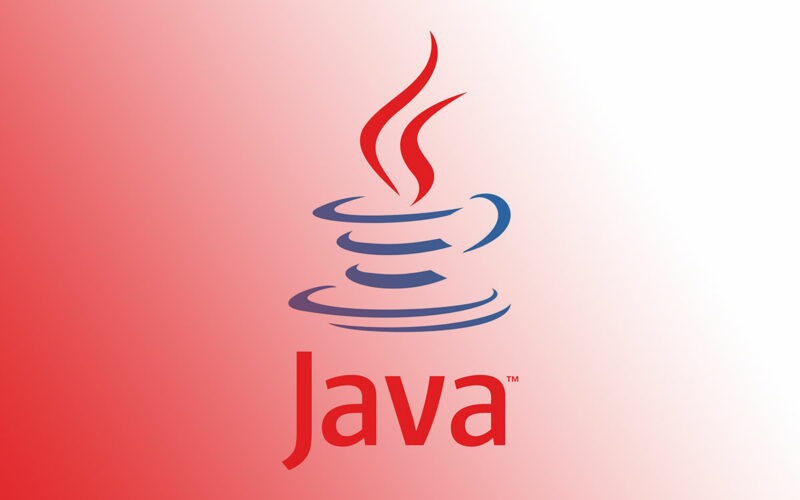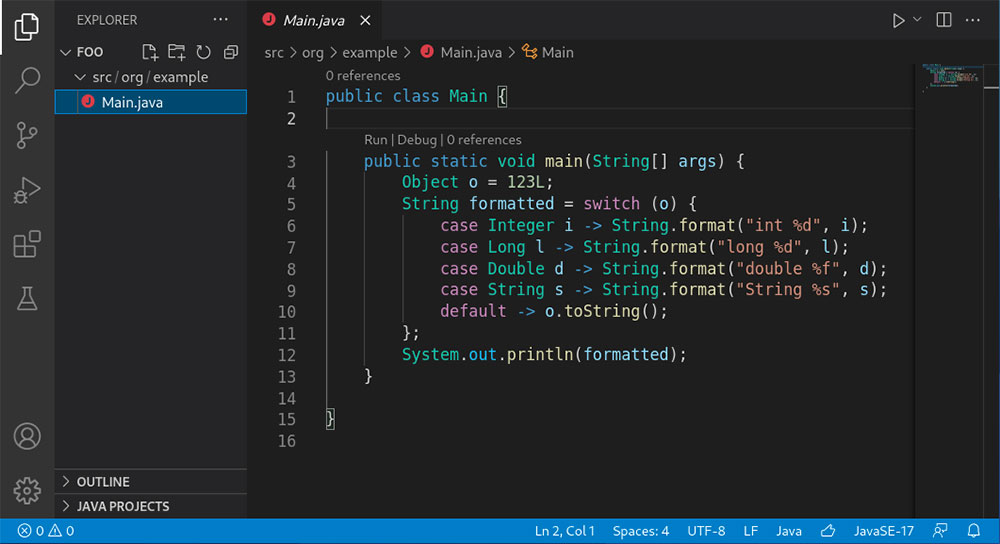Exploring Uses: What is Java Used For in Modern Tech?

Imagine unraveling the secrets of a language that powers millions of devices worldwide. Java isn’t just another programming language; it’s the backbone of countless applications – from the smallest mobile games to the largest enterprise systems.
In the labyrinth of code that forms our digital existence, Java is a constant – a versatile soldier capable of battling on any front. Here, I’ll unveil the spheres where Java flexes its muscles, demonstrating why this language remains indispensable in today’s tech-driven landscape.
By the final punctuation mark of this exploration, you’ll grasp the remarkable versatility and omnipresence of Java. From breathing life into Android apps to orchestrating the flow of complex web applications, Java’s roles are as varied as they are critical.
We’ll explore its omnipotence in cross-platform development, how it’s a linchpin for server-side scripting, and why it prevails as the foundation for secure coding.
Java’s influence stretches far, embedding itself in the fabric of the digital world. Engage in this journey; it’s where the abstract meets the practical, and the magic of Java is decoded.
What is Java Used For?
Java is widely used for building enterprise-scale web applications and backend systems. It’s popular in Android app development, big data processing, and embedded systems due to its portability, performance, and extensive libraries. Java’s robustness and maintainability make it a favorite among large organizations.
| Use Case | Features | Frameworks/Libraries | Scalability | Notable Projects |
|---|---|---|---|---|
| Desktop Apps | Cross-platform GUI | Swing, JavaFX | JVM optimizations | IntelliJ IDEA |
| Web Apps | JSP, Servlets | Spring, JSF | Enterprise-level | Apache Tomcat |
| Enterprise | EJB, JPA | Spring, Hibernate | Clustering, J2EE | JBoss, WebSphere |
| Mobile Apps | Portability | Android SDK | Multi-threading | Android applications |
| Embedded Sys. | Small footprint | Java ME, OSGi | Resource-efficient | IoT devices |
Core Features of Java

Java, it’s like the Swiss Army knife of programming languages, versatile and powerful.
When people ask, “What is Java used for?” they’re really diving into a sea of endless possibilities. But to truly understand this, we need to look at its core features.
Object-Oriented Programming
Concept and benefits of object-oriented design in Java
Let’s kick things off with Object-Oriented Programming (OOP). In simple terms, OOP in Java is like building with Lego blocks.
You have these blocks (objects) that can be reused and combined in countless ways. This approach makes Java incredibly flexible and scalable, perfect for everything from small apps to giant enterprise systems.
The beauty of Java’s OOP lies in its ability to simplify complex software development, making it more organized and modular.
Plus, it’s easier to debug and maintain. Neat, right?
Platform Independence
Role of Java Virtual Machine (JVM)
Ever heard the phrase, “Write once, run anywhere”? That’s Java’s superpower, thanks to the Java Virtual Machine (JVM).
The JVM is like a middleman, translating Java bytecode into machine language for different platforms.
This means you can run your Java program on any device that has a JVM, regardless of its underlying hardware and software.
This cross-platform magic is a game-changer, especially in today’s diverse tech environment.
Cross-platform capabilities and benefits
Imagine creating an application that works seamlessly on Windows, Mac, Linux, and even on mobile devices.
That’s the cross-platform power of Java. It opens doors to a wider audience and makes life so much easier for developers.
Security and Robustness
Built-in security features
When it comes to security, Java is like a fortress.
It has built-in safeguards like the Java security manager and access control, ensuring that your application is like a vault, safe from external threats.
This is particularly crucial for web and enterprise applications, where data security is paramount.
Error handling and memory management
Java’s approach to error handling and memory management is like having a safety net. It prevents crashes and memory leaks, ensuring smooth and reliable operation.
Automatic garbage collection is one of Java’s key features, taking care of memory allocation and de-allocation, so you don’t have to. It’s like having a personal assistant who constantly cleans up after you!
When delving into the world of Java, it’s great to have resources at hand.
If you’re looking to expand your Java knowledge, check out some of the best Java courses available. They’re perfect for getting a deeper understanding of these core features.
Java in the Job Market
Talking about Java in the job market is like discussing a giant in a land of tech titans. It’s huge, and rightly so.
Why?
Because when people ask, “What is Java used for?” the answer is pretty much everywhere in the tech industry. Let’s break it down.
Demand for Java Skills
Java isn’t just another programming language; it’s a skill that’s in high demand.
From small startups to huge corporations, Java developers are sought after for their expertise in this versatile language.
Popularity among developers
Java has been around for a while, and it’s like the old guard of programming languages – reliable, trusted, and incredibly popular.
It’s not just about writing code; it’s about solving problems, building robust applications, and turning ideas into reality.
Whether it’s web development, mobile app creation, or enterprise solutions, Java skills are a hot ticket in the job market.
Career prospects and average incomes for Java developers
The career prospects for Java developers are bright. Seriously, they’re kind of a big deal. With Java being integral in fields like Android app development, enterprise software, and even emerging technologies, the demand keeps growing.
And with great demand comes great paychecks. Java developers often command impressive salaries, making this skillset not just exciting but also financially rewarding.
Now, if you’re thinking of stepping into the world of Java or upping your game, it wouldn’t hurt to check out some Java certifications. They can really boost your profile and open doors to new opportunities.
Key Applications of Java
Java, oh Java, what realms haven’t you touched? When we ask, “What is Java used for?” the real question is, what isn’t it used for?
This language isn’t just a techie favorite; it’s a powerhouse that drives some of the coolest and most crucial tech around.
Web Application Development
Java and the web go together like peanut butter and jelly. It’s a classic combo, powering loads of websites and applications.
Use in e-commerce, social media platforms, and enterprise systems
E-commerce sites? Yep, Java’s in there. Social media platforms? You bet. Massive enterprise systems?
Absolutely.
Java’s robustness and scalability make it a go-to for these heavy-duty applications. It’s like the Hercules of programming languages for web development.
Popular Java frameworks for web development
Frameworks like Spring and Hibernate aren’t just fancy names; they’re the secret sauce that makes Java development smoother and faster.
They’re like the toolbox for building and maintaining sophisticated web applications.
For anyone looking to dive into Java for web development, understanding its frameworks is key.
They’re like the map to navigate the vast landscape of Java web development.
Mobile Application Development
Did you know Java is kind of a big deal in the mobile world too?
Java as the primary language for Android apps
If you’ve ever used an Android app, chances are, it was built with Java.
It’s the primary language for Android development, responsible for bringing to life millions of apps on the Google Play Store.
Cross-platform mobile development tools
And it’s not just about Android. Java also plays nice with cross-platform tools, making it possible to develop apps that work across different types of devices.
It’s like being fluent in multiple languages!
Enterprise Application Development
In the corporate world, Java is like the trusted suit that never goes out of style.
Use in banking, finance, healthcare, and supply chain systems
From managing financial transactions to keeping healthcare systems running, Java is the backbone of many enterprise applications.
Its reliability and security features make it a perfect fit for industries where precision and robustness are non-negotiable.
Relevant Java frameworks and technologies
Frameworks like Java EE (Enterprise Edition) are tailor-made for these large-scale applications. They’re like the special gear needed for high-stakes operations.
Internet of Things (IoT)
Java and IoT, it’s like watching two geniuses team up. Java brings its portability and ease of use to the table, making it a great choice for IoT applications.
Java’s role in developing IoT applications
From smart homes to connected cars, Java is playing a pivotal role in the IoT revolution. It’s like the brain helping all these devices communicate and work together seamlessly.
Strengths of the Java Platform
Talking about Java is like discussing a seasoned warrior in the realm of programming languages.
It’s not just about “what is Java used for”; it’s about appreciating the strengths that make Java a go-to choice for developers across the globe.
Versatility and Scalability
Java’s adaptability across various applications
Java is like a chameleon, seamlessly blending into various environments.
Whether it’s a small mobile app or a large enterprise system, Java adapts and excels. Its versatility is unmatched, making it a popular choice across diverse sectors like banking, healthcare, and e-commerce.
Handling large and complex systems
When it comes to managing big, complicated systems, Java is like a pro juggler.
It handles multiple processes and large amounts of data with ease, ensuring smooth and efficient operation. This scalability is crucial, especially when dealing with enterprise-level applications where the stakes are high.
Community and Resources
The extensive Java community
Think of the Java community as a bustling city square, always buzzing with activity. It’s a place where developers meet, share ideas, and help each other out.
This community is a goldmine of knowledge, with veteran programmers and newbies alike contributing to a rich ecosystem of resources.
Availability of learning resources and tools
Learning Java is like having a key to an immense library. There are countless resources available, from online tutorials and forums to comprehensive books.
For those diving into the world of Java, exploring Java books can be an excellent start. They offer a wealth of information, making the learning journey smoother and more engaging.
Learning Java

So, we’ve talked a lot about “what is Java used for,” but how about getting into the driver’s seat and learning it?
Java isn’t just a language; it’s a skill that opens doors to countless possibilities. Let’s dive into what it takes to learn Java and why it’s totally worth it.
Benefits of Learning Java
Ease of learning and abundance of resources
Learning Java is like starting an epic journey with a reliable map and a full backpack.
Sure, it has its complexities, but the clarity of its syntax makes it approachable, especially for beginners.
Plus, the internet is overflowing with resources.
From Java courses to online forums, there’s a treasure trove of materials to help you navigate through the learning process.
Starting point for other programming languages
Once you get the hang of Java, learning other languages becomes a breeze. It lays a solid foundation, making it easier to pick up languages like Kotlin, Scala, or even Python.
Challenges in Learning Java
Time commitment and understanding concepts
No sugarcoating here: mastering Java takes time and effort. It’s like learning to play a musical instrument; practice and patience are key.
Grasping concepts like object-oriented programming and JVM intricacies can be challenging, but hey, no great skill was ever acquired overnight, right?
Resources for Learning Java
Online courses, tutorials, and books
The best part about learning Java? You’re never alone. The internet is packed with resources.
From comprehensive books that break down complex concepts to interactive online courses, there’s something for every learning style. And let’s not forget the vibrant Java community, always ready to lend a helping hand.
FAQ On What Is Java Used For
Can Java be used for web development?
Absolutely. Java’s strength in web development is unparalleled, thanks to its enterprise-centric platform, Java EE, as well as numerous Java frameworks like Spring and Hibernate.
Websites employing Java in the backend are robust, high performing, and scalable to suit growing business demands.
Is Java suitable for modern mobile app development?
Indeed, it shines brightly here. Android app development relies heavily on Java, making it the go-to language for crafting applications that run on the most widely used mobile OS on the planet. It’s the architect behind countless apps in the Google Play Store.
What roles does Java play in software development?
Java is a jack-of-all-trades in software development. Its capability to enable cross-platform software development creates a universal language for applications. Whether it’s for desktop, mobile, or embedded systems, Java provides a common dialect for developers to converse in code.
How does Java handle backend processes?
With precision and reliability. Java is a stalwart for server-side scripting, managing backend development with ease. It handles complex computational tasks, data processing, and application logic – all crucial for a seamless user experience on the front end.
Is Java important in enterprise applications?
Unquestionably, it’s the cornerstone of many enterprise solutions. Large-scale business systems depend on Java for their infrastructure. With technologies like Java EE and application servers like IBM WebSphere, Java is a standard-bearer for corporate software requirements.
How relevant is Java in desktop applications?
Its relevance is clear and present. Java’s history is decorated with desktop applications, and it still holds its ground in this arena. Java’s versatility includes the creation of cross-platform GUI applications, courtesy of libraries like Swing and JavaFX.
What makes Java a good choice for Internet of Things (IoT) devices?
Java’s portable nature makes it ideal for IoT. It brings consistency to the fragmented IoT ecosystem, allowing developers to write code that runs across a myriad of devices. Thus, Java becomes the connective tissue in the diverse world of IoT devices.
Why do programmers use Java for game development?
Java’s ability to run on multiple platforms makes it an attractive choice for game developers. It has a host of tools and libraries like LWJGL (Lightweight Java Game Library) that serve as the foundation of various indie and mobile games.
Can Java be utilized for artificial intelligence and machine learning?
Certainly. Java boasts libraries like Deeplearning4j that cater to the AI and machine learning space. Its stability and ease of use make it a practical choice for developers venturing into the realms of AI, without straying from Java’s familiar syntax.
Is Java involved in Big Data analytics?
Java is a veteran in this field. The Hadoop ecosystem, pivotal in Big Data analytics, operates largely on Java. Its robustness and performance underpin Big Data technologies, showing Java’s capabilities extend into the analytical and data-driven domains of the tech world.
Conclusion
So, we’ve journeyed through the multifaceted world of Java, peeling back layer upon layer to reveal its core importance. What is Java used for? The answer, it turns out, spans a spectrum of possibilities as wide and varied as the very landscape of technology itself.
- From harnessing the power of Big Data to becoming the backbone of countless Android applications,
- From serving the ceaseless demands of modern-day IoT devices to facilitating the intricate dance of backend development,
- From underpinning secure, resilient enterprise applications to offering a helping hand in the emerging realms of AI and machine learning,
Java proves its staying power in a swiftly evolving tech universe. As we conclude, remember Java not only as a language but as the silent force driving innovation behind the scenes. It’s more than a tool; it’s the craftsman’s lifelong companion in the digital forge, shaping the future with each line of code.
- Top 7 Ways Outsourcing eCommerce Customer Service Can Increase Your Sales - May 5, 2024
- Animate with Ease: Top CSS Animation Libraries Today - May 5, 2024
- Golang’s Growing Use: What is Golang Used For? - May 5, 2024








